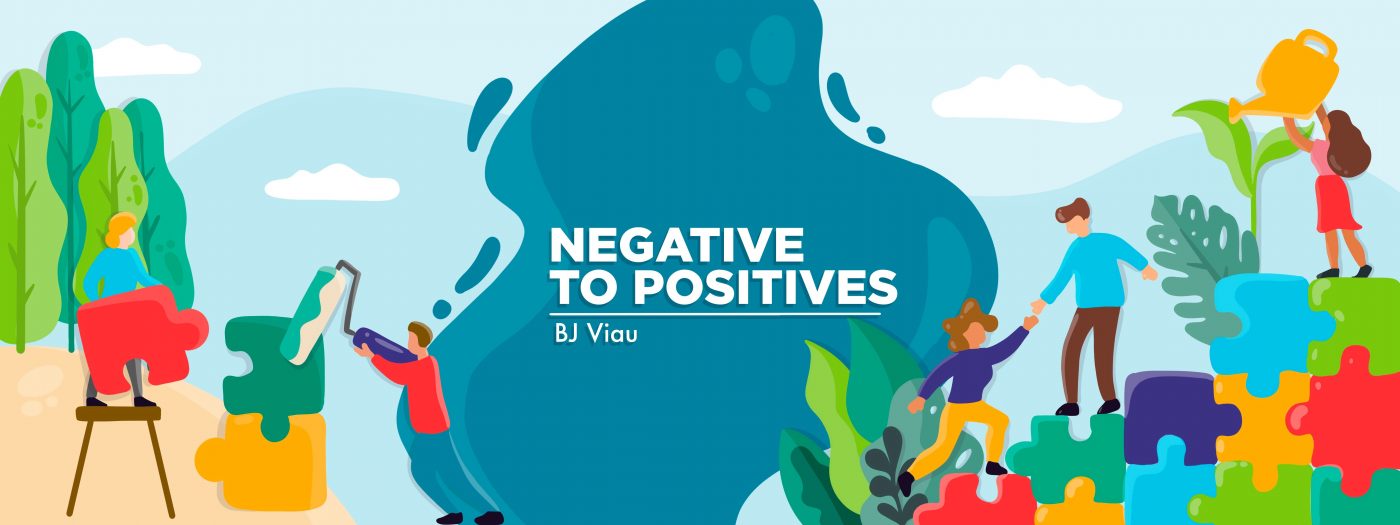I’m Thankful for the Positive Aspects of Huntington’s Disease
Written by |

It’s somehow already Thanksgiving week here in the U.S. Where did the year go?
This is the perfect time to reflect on the year and count our blessings. Nobody’s life is perfect, and those of us in the Huntington’s community have definitely had our fair share of struggles and tough days.
But despite the challenges, I am thankful for many aspects of Huntington’s disease (HD).
HD took my mom from me too early. It’s taken my friends’ lives, and it will soon take the future away from many in my closest circles. So, how the heck can I be thankful?
My purpose and passion in life is to help others, and I am grateful for the opportunities I’ve had to accomplish this. Following are the top three ways I feel I’ve made positive strides in the HD community this year.
Writing my column
I started writing my column, “Negative to Positives,” over a year ago. I was never good at writing, and I haven’t enjoyed it in the past, but I wanted to find a new platform where I could connect with people.
Writing about HD-related topics has brought me joy. I don’t have millions of readers, but I occasionally receive a comment or an email from someone I don’t know seeking some type of assistance. I’ve replied to every message, offering my time and resources to whoever needs them. I am thankful that this column has enabled me to connect with and learn from many of those affected by HD. Thank you for reading!
Contributing to the research pipeline
Over the past year, I’ve connected with friends in the HD community who share many of my views and frustrations about future HD treatments. I don’t recall how these conversations started, and I don’t know where they will end, but I’m confident we will find a way to help potential therapies reach the finish line. My friends and I aren’t scientists, but I believe our expertise within the community can help to improve clinical trial design and recruitment.
Special thanks to my friends Seth and Lauren for our continued conversations, which are available for listening at Help 4 HD Live!
Building a new tool for the community
After stepping away as a board chairman for the Huntington’s Disease Youth Organization last year, I’ve been working on ways to stay involved and build something new for the HD community. In trying to figure out exactly what that will be, I’ve had the pleasure of talking to many people, including top HD clinicians, advocates, representatives from pharmaceutical companies, researchers, and family members. About 95% of the people I’ve reached out to have been willing to donate their time and let me pick their brain. I am very grateful to them, and promise to contribute something new to the community soon.
A special thank you to two of my HD mentors, Dr. Martha Nance, a neurologist and geneticist who leads Huntington’s research efforts, and Arvind Sreedharan, senior vice president of business operations at Neurogene, a gene therapy development company. Both have been in my life for many years and continue to volunteer a tremendous amount of their time to helping me brainstorm.
I’m sure not everyone feels grateful when considering HD. I’m not thankful for everything it’s brought to my life, but I will hold on to the positives.
Cheers to all of you. If you celebrate, have a wonderful Thanksgiving, and don’t forget to count your blessings.
Are you thankful for anything HD-related? Please share in the comments below.
***
Note: Huntington’s Disease News is strictly a news and information website about the disease. It does not provide medical advice, diagnosis, or treatment. This content is not intended to be a substitute for professional medical advice, diagnosis, or treatment. Always seek the advice of your physician or other qualified health provider with any questions you may have regarding a medical condition. Never disregard professional medical advice or delay in seeking it because of something you have read on this website. The opinions expressed in this column are not those of Huntington’s Disease News or its parent company, Bionews, and are intended to spark discussion about issues pertaining to Huntington’s disease.




Leave a comment
Fill in the required fields to post. Your email address will not be published.